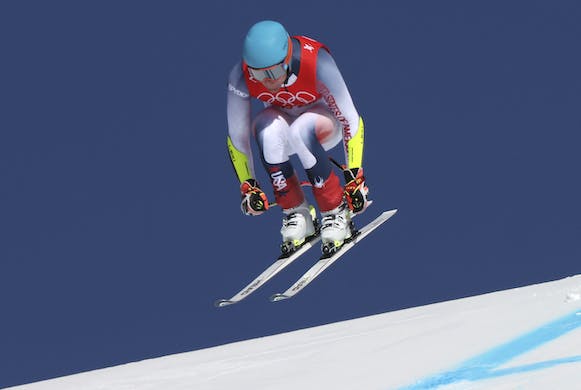Will Congress Take Aim at Legacy Olympians?
Medals run in the family, a study shows, so maybe Democrats will try to stop offspring from competing like some want to outlaw legacy preferences in college admissions.

The big news of the just-concluded Beijing Olympics is that having parents who are world-class athletes turns out to be a major advantage.
It’s a sports story with policy implications, because it tells a tale about accomplishment that’s a departure from the usual narrative of individual merit. Instead it emphasizes the significance of having highly accomplished parents.
“Olympic medalist” turns out to be right up there with “king of England” or “publisher of the New York Times” in terms of the advantage conferred by having a parental predecessor in the job.
Skier Ryan Cochran-Siegle won a silver medal for the U.S. in Beijing in super-G. His mother, Barbara Ann Cochran, won a gold medal in the slalom in the 1972 Winter Olympics in Sapporo, Japan.
The gold medalist in the super-G in Beijing was Matthias Mayer of Austria. His father, Helmut Mayer, won a silver medal at the 1988 Calgary Olympics.
Austria’s Johannes Strolz left Beijing with three medals, including a gold in the men’s alpine combined — an event that his father, Hubert Strolz, won in Calgary in 1988.
“I’m so thankful that I finally can live my dream and have this gold medal in my hands like my father did in 1988 in Calgary,” Johannes Strolz told reporters afterward.
Jaelin Kauf won a silver medal in Beijing for the U.S. in women’s mogul skiing. Her parents, Patti and Scott, were champion pro mogul skiers.
A 2018 study published in the scientific journal Frontiers of Physiology looked at all of the 125,051 Olympic athletes who competed in the games between 1896 and 2012. Titled, “A Medal in the Olympics Runs in the Family: A Cohort Study of Performance Heritability in the Games History,” the study concluded that “the medal probability was significantly greater among Olympians having a kinship with a former Olympic medalist.” Children of Olympic medalists had about double the likelihood of winning a medal compared with other Olympic athletes whose parents hadn’t won a medal, the study found.
That paper pointed to genetic factors, including height and “the type and size of the muscle fibers.” It also mentioned environmental factors, like a “socio-cultural heritance” that influences “the development of sport expertise.” Terms in the paper like “availability to practice” and “experience exchange” are fancy ways of describing when you live near a mountain and your dad or mom teaches you how to ski.
In August 2020, I wrote a similar column noticing that the Toronto Blue Jays had been starting an infield of entirely the sons of professional baseball players. I wrote then that the phenomenon demonstrated the futility of government efforts to level the playing field: “Unless the government is going to take children away from parents at birth or outlaw father-son backyard batting practice or after-dinner games of catch, preventing what the levelers decry as a ‘hereditary elite’ is impossible.”
That certainly won’t stop lawmakers from trying, whether by imposing estate taxes or by outlawing legacy preferences in college admissions, as legislation introduced earlier this year attempts to do.
The “Fair College Admissions for Students Act” is sponsored in the Senate by Jeff Merkley, Democrat of Oregon, and in the House by such hard-left figures as Alexandria Ocasio-Cortez, Cori Bush, and Ayanna Pressley. Introducing it, Mr. Merkley observed that, “Getting into college can be really tough for people … whose parents have never been through the process before.” He warned of “an unlevel playing field for students without those built-in advantages, especially impacting minority and first-generation students.”
Maybe Mr. Merkley and Ms. Ocasio-Cortez will next try outlawing legacy Olympic medalists?
Sure, it’s not precisely the same thing; a college degree is a more basic credential than an Olympic medal. Banning special preferences for children of alumni of an individual college does not take away all the other advantages for children of college graduates.
Yet it’s hard to miss the similarities between the Olympics and elite college admissions in terms of the advantage of having parents who have “been through the process before.”
Some people will react to news about the importance of family background by redoubling efforts to level the playing field. Others will react by saying it proves the impossibility of such efforts.
It’s certainly possible that some second-generation medalists, or medal hopefuls, would have been happier if they spent less time skiing and more time doing something else. Some college applicants, too, would be happier attending a college other than the one a parent graduated from.
For the majority of us whose parents never won an Olympic medal, though, the games are a reminder that our achievements are shaped by our family background. That is humbling, both about how our “own” accomplishments aren’t entirely ours, and also about how government efforts, even well-intentioned ones, aimed at removing “built in advantages” are often bound to collide with the institution of the family.

